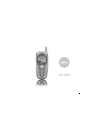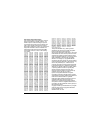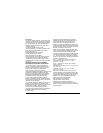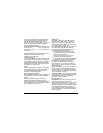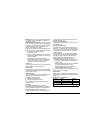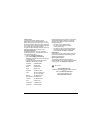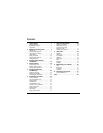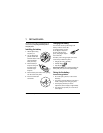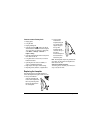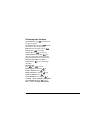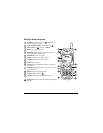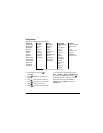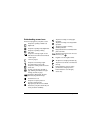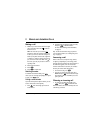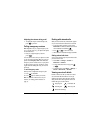
iv
The FCC has granted an Equipment Authorization
for this model phone with all reported SAR levels
evaluated as in compliance with the FCC RF
emission guidelines. SAR information on this model
phone is on file with the FCC and can be found
under the Display Grant section
http://www.fcc.gov/oet/fccid after searching on the FCCID:
Additional information on SAR can be found on the
Cellular Telecommunications and Internet
Association (CTIA) web-site at
http://www.wow-com.com.
* In the United States and Canada, the SAR limit for
mobile phones used by the public is 1.6 watts/kg (W/
kg) averaged over one gram of tissue. The standard
incorporates a substantial margin of safety to give
additional protection for the public and to account for
any variations in measurements.
Caution
The user is cautioned that changes or modifications
not expressly approved by the party responsible for
compliance could void the warranty and user’s
authority to operate the equipment.
Optimize your phone’s performance
Use the guidelines on page 1 to learn how to optimize
the performance and life of your phone and battery.
Air bags
If your vehicle has an air bag, DO NOT place
installed or portable phone equipment or other
objects over the air bag or in the air bag deployment
area. If equipment is not properly installed, you and
your passengers risk serious injury.
Medical devices
Pacemakers—Warning to pacemaker wearers:
Wireless phones, when in the ‘on’ position, have
been shown to interfere with pacemakers. The
phone should be kept at least six (6) inches away
from the pacemaker to reduce risk.
The Health Industry Manufacturers Association and
the wireless technology research community
recommend that you follow these guidelines to
minimize the potential for interference.
• Always keep the phone at least six inches
(15 centimeters) away from your pacemaker
when the phone is turned on.
• Do not carry your phone near your heart.
• Use the ear opposite the pacemaker.
• If you have any reason to suspect that interference
is taking place, turn off your phone immediately.
Hearing aids—Some digital wireless phones
may interfere with hearing aids. In the event of
such interference, you may want to consult your
service provider or call the customer service line to
discuss alternatives.
Other medical devices—If you use any other personal
medical device, consult the manufacturer of the
device to determine if it is adequately shielded from
external RF energy. Your physician may be able to
help you obtain this information.
In health care facilities—Turn your phone off in health
care facilities when instructed. Hospitals and health
care facilities may be using equipment that is
sensitive to external RF energy.
Potentially unsafe areas
Posted facilities—Turn your phone off in any facility
when posted notices require you to do so.
Aircraft—FCC regulations prohibit using your phone
on a plane that is in the air. Turn your phone off.
Vehicles—RF signals may affect improperly installed
or inadequately shielded electronic systems in
motor vehicles. Check with the manufacturer of the
device to determine if it is adequately shielded from
external RF energy.
Model K483XLC FCC ID: OVFKWC-K4X3
Model K484NC, K484LC,
and K484XLC
FCC ID: OVFKWC-K4X4



